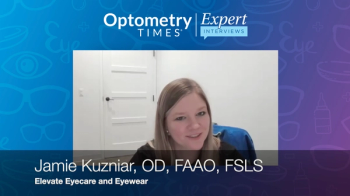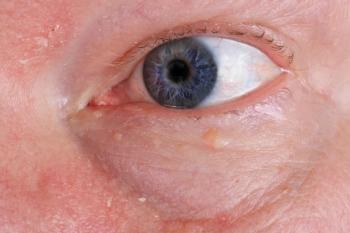
Addressing glaucoma conundrums
Medical care is often fraught with clinical conundrums, from the logistical of figuring out what to do with patients who refuse to take medicine, to tests or imaging that don't match diagnoses.
Las Vegas-Medical care is often fraught with clinical conundrums, from the logistical of figuring out what to do with patients who refuse to take medicine, to tests or imaging that don't match diagnoses. Caring for glaucoma patients is no different, as Joseph Sowka, OD, FAAO, can testify.
"The more glaucoma patients I see, the more conundrums I run into," Sowka says of his work at the Nova Southeastern University College of Optometry, where he sees glaucoma patients exclusively. "If you feel like you're struggling out there with some of these issues, understand that we all experience them."
Diagnostic testing
Of the biggest challenges clinicians face is whether a patient actually has glaucoma. While technology and testing has advanced over the years, there are still many instances when different tests-OCT, visual field, etc.-produce conflicting results. Conflicting results can lead to improper diagnosis and more harm than good, especially when optometrists start treatments based solely on problems identified in tests.
"You need to treat the real disease, not 'red' disease," Sowka says. He points out that often tests can be misleading, displaying "red" problem areas where there really are none. He recalls an example of one patient whose three digital retinal photographs showed clear glaucomatous progression. The problem was, those three images were done within 15 minutes of one another. "Clearly, more testing was needed as this wasn't showing the whole story."
Sowka recommends comparing multiple tests and recognizing that discrepancies often point to a problem other than glaucoma. From optic nerve anomalies to neurological diseases, along with a host of alternate “-omas,” each can present test results at one point in time that could be interpreted incorrectly.
Observation over time
But while conflicting test results are among the biggest conundrums clinicians face, there are plenty others as well. One challenge he frequently addresses is the correlation between disc hemorrhages and glaucoma.
"Don't assume all hemorrhages of the disc are glaucomatous disc hemorrhages," he said. "One doesn't necessarily correlate the other." And, while disc hemorrhages can be predictive of glaucomatous progression, the treatment of glaucoma should be unrelated to their presence or frequency.
The most important thing to remember, he said, is that when faced with a challenge on how to treat a patient, the best course of action is to use the treatment that causes the least amount of harm to the patient. If the patient isn't under immediate threat of vision loss, Sowka says simple observation over time can be key to understanding the true underlying issue.
Patient management
But not all conundrums are related to diagnoses, he says. Some of the most difficult with which to grapple are related to patient management. Some patients, for example, refuse to take their medication-or can't afford it, or simply don't believe the diagnosis given to them. In preparation for those scenarios, Sowka stresses the importance of practitioners having other resources they can point to, such as generic medications, resources for patient assistance, and simply recommending that patients get second opinions.
In the end, it's all about what's best for the patient, he said.
Newsletter
Want more insights like this? Subscribe to Optometry Times and get clinical pearls and practice tips delivered straight to your inbox.













































